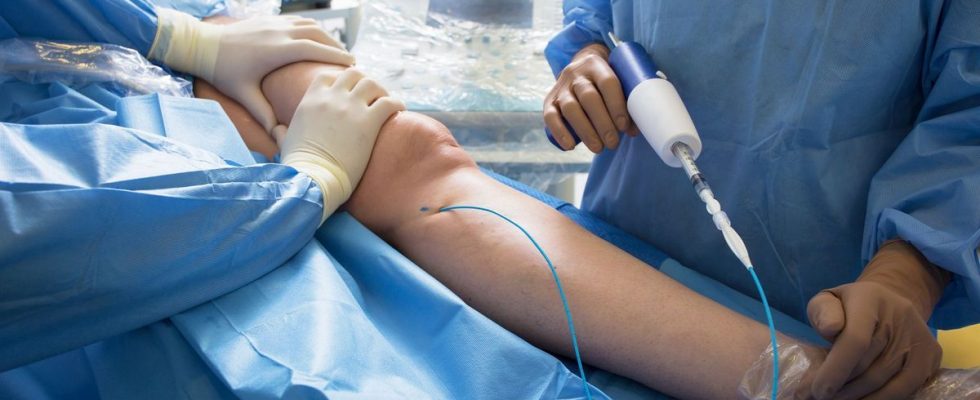Published on
Updated
Reading 2 mins.
Since March 1, thrombo-aspiration catheters, state-of-the-art equipment in the treatment of strokes, are no longer covered by Social Security. A worrying decision when we know that the technique makes it possible to avoid serious sequelae.
On March 1, many changes in health, as in energy, and in the economy were recorded. But some plane strokes go worse than others. In hospitals in particular, it was decided that thrombo-aspiration catheters, at an average cost of 1,500 euros per kit, would no longer be covered by Social Security. Deprived of reimbursement from the State, they will now be entirely the responsibility of hospitals.
An emergency device that prevents sequelae related to strokes
These thrombo-aspiration catheters are used by neuroradiologists to perform mechanical thrombectomies, which are essential for the emergency treatment of certain stroke patients. Placed in the groin, they go as far as the brain to remove the clot responsible for the stroke.
A large study published only a month ago also attested to the effectiveness in terms of survival and sequelae of this method, even in the most serious strokes. As such, the method is increasingly developed, and even represents a reference today.
“450,000 euros loss over one year, for 300 interventions”
“We are in the most total incomprehension” reacted on France Info, Monday March 6 Julien Gottsmann, general manager of the Fondation Rothschild hospital in Paris “€1,500 each. This represents today 15% of the price that we are reimbursed by Social Security to take a patient. It is therefore a 15% total reduction. Out of 300 thrombectomies performed on average per year in the hospital, the discontinuation of reimbursement represents 450,000 euros in deadweight loss over the year. “It’s huge, especially at this time when we are suffering, like everyone else, from inflation” he protests.
A brake on the development of thrombectomy?
A statement slightly nuanced by Professor Sonia Alamowitch, head of the Cerebrovascular Emergency Department at the Pitié-Salpêtrière Hospital contacted by Doctissimo.
“It is the cessation of funding normally dedicated to innovation and from which the thrombectomy aspiration equipment benefited. However, the stop is not really justified. If it is true that it is a therapy used for several years, therefore more “innovative” in the broad sense, it is nevertheless still under development and new centers are opening to perform this thrombectomy. This financial guarantee was a boost to encourage establishments to invest in the management of strokes.
Does this decision risk reducing the number of acts, or even generating a loss of chance among French stroke victims?
“The decision is very recent, so it’s too early to tell. There will not necessarily be fewer acts, but it will however be more complicated to amortize the material costs. This will therefore weigh on hospitals already in difficulty, and risks hindering the development of new centers when there is a lack of them to treat patients throughout the territory. It’s not really helping” she concludes.
